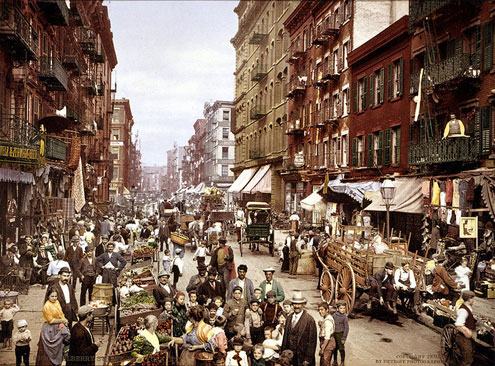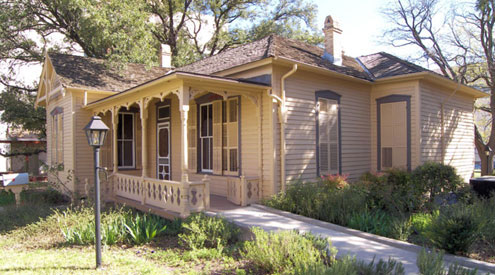Everything that had occurred in Harry Peyton Steger’s life up to this point, it would seem, was simply to prepare him for the year at hand.
1909 was probably the year Harry met his wife-to-be, it was most assuredly the year that Steger became inextricably involved in managing the career of William Sydney Porter, a reclusive and mysterious writer the world knew only as O. Henry, and it was also the year the responsibility of editor-in-charge of Short Stories magazine was turned over to the Bonham High School graduate.
Impressive, particularly considering Steger was only 25 or 26 at the time, and remarkable, perhaps even fated, when added to the fact he had arrived in New York City alone and practically penniless in the fall of 1907.
Playwright and friend Montague Glass asked Harry how, on top of reviving the career of O. Henry and republishing much of the well-known writer’s early work in collective form, he could possibly find time to devote to Short Stories and the numerous writers vying for a spot in that magazine.
“I can do it with my left hind foot before breakfast in the morning,” Steger replied, exposing his Fannin County roots.
Actually, Steger’s position guiding the content of Short Stories complimented his post as literary advisor at Double, Page and Company perfectly. As a writer badly bruised from rejection after rejection by editors and publishers he found none too impressive during his first few difficult months in New York, Harry now battled tooth and nail on behalf of dozens of aspiring authors, recruiting the cream of the crop for Doubleday, Page and Company and even going so far as to recommend the best of the remaining writers to other publishing houses.
When all else failed, there was always a place in Short Stories for a wordsmith.
“As little importance as he attached to this part of his work, he nonetheless made it inure to the benefit of his friends,” Montague Glass would explain later. “Short Stories was the ship’s graveyard of many a derelict manuscript—my own among others, nor do I with due modesty believe it was the worse on that account, for many of these stories had been rejected by editor after editor only upon the ground that they might offend advertisers. And at that time, Short Stories carried no advertising.”
According to Glass, Harry’s acceptance of stories ran something like this.
My dear Mont:
I have concluded to bury ‘Mr. Lomedico’ in the columns of Short Stories, and a check for it will be mailed to you just when your patience is about to become exhausted.
Yours Sincerely,
H.P.S.
At the same time, Doubleday, Page and Company asked Steger if he might be able to accomplish a task that seemed years overdue--provide publicity for acclaimed short story writer, O. Henry.

No one had managed to get a photograph of the shadowy author in a decade; he refused recognition of any sort, preferring to maintain a bohemian lifestyle that allowed him to weave unnoticed through the four million inhabitants of New York City, for they provided an endless source of plots and characterizations that were always at play in the mind of William Sydney Porter.
Steger was the ideal man to bring O. Henry out of hiding.
Harry came at this project with a writer's heart. On top of that, Harry understood the lifestyle. Half a century before the Beat Generation and 60 or 70 years before the term hippies was coined, free-spirited souls that placed artistic expression far above status and wealth were known as bohemians. The description was first used in France in the late 19th century in reference to a large number of creative and artistic nonconformists arriving from Bohemia in the Czech Republic. That same description had been applied to Steger in the first part of 1907 when he gave up his Rhodes Scholarship and decided to try and make a living as a writer in London.
Again, Montague Glass provides proper narrative for this period in Steger's life.
"It seems that after he left Oxford," Glass recalled, "he went up to London and sought a position with a publishing firm, and to eke out expenses, Harry rented two rooms in Bloomsbury, which he furnished with second-hand armchairs and a sofa or two. There Harry invited Oxford undergraduates to occupy for the night whenever they overstayed the last train and the tariff was six-pence for an armchair and a shilling for a sofa. A saucepan of porridge always simmered on the hob of the fireplace and a liberal helping was included in the charge for a night's lodging. The door was never locked and that the lodgers should come in and go out quietly and should leave the six-pence on the furniture occupied, were the only two rules, neither of which seems to have been strictly enforced; for, at the end of a month, when Harry was dispossessed because of the nightly riots on his premises, three shillings and sixpence had been collected as against ten shillings' worth of porridge consumed."
So, Harry had a thing or two in common with the elusive writer he now found himself pursuing, although Porter never deserted his bohemian lifestyle and by this point Steger would be best defined as a bourgeois bohemian -- someone who had now managed to parlay creativity into a lucrative trade.
What Steger didn't realize at the time was that one of the best known writers in the U.S. had a good reason for the low profile; it was to be a secret that Steger would only fully comprehend in 1912, two years after William Sydney Porter had died of tuberculosis. That was when Harry was in Austin, Texas going through documents tucked away in the attic of the house that had been the home of William Sydney Porter and his frail wife, Athol Porter, in the early 1890s. Harry was doing research for what was intended to be the official biography of Porter.

Surely, as Steger read and reread the words, the pieces came together; Harry finally understood his friend, Sydney Porter.
The personable and socially active Austinite of the late 19th century had disappeared under the crushing weight of a life that crumbled down around him.
Out of the debris stumbled O. Henry.
Previous Steger articles:
http://www.ntxe-news.com/artman/publish/article_110485.shtml
http://www.ntxe-news.com/artman/publish/article_110483.shtml
http://www.ntxe-news.com/artman/publish/article_110478.shtml
http://www.ntxe-news.com/artman/publish/article_110479.shtml
http://www.ntxe-news.com/artman/publish/article_110480.shtml
http://www.ntxe-news.com/artman/publish/article_110481.shtml
http://www.ntxe-news.com/artman/publish/article_110482.shtml
http://www.ntxe-news.com/artman/publish/article_110486.shtml
http://www.ntxe-news.com/artman/publish/article_110487.shtml
http://www.ntxe-news.com/artman/publish/article_110489.shtml
http://www.ntxe-news.com/artman/publish/article_110490.shtml
http://www.ntxe-news.com/artman/publish/article_110491.shtml
http://www.ntxe-news.com/artman/publish/article_110520.shtml
http://www.ntxe-news.com/artman/publish/article_110521.shtml
http://www.ntxe-news.com/artman/publish/article_110522.shtml
http://www.ntxe-news.com/artman/publish/article_110523.shtml
http://www.ntxe-news.com/artman/publish/article_110596.shtml
http://www.ntxe-news.com/artman/publish/article_110597.shtml
http://www.ntxe-news.com/artman/publish/article_110598.shtml
http://www.ntxe-news.com/artman/publish/article_110599.shtml
http://www.ntxe-news.com/artman/publish/article_110600.shtml
http://www.ntxe-news.com/artman/publish/article_110601.shtml
http://www.ntxe-news.com/artman/publish/article_110602.shtml
http://www.ntxe-news.com/artman/publish/article_110606.shtml
http://www.ntxe-news.com/artman/publish/article_110607.shtml
http://www.ntxe-news.com/artman/publish/article_110608.shtml
http://www.ntxe-news.com/artman/publish/article_110609.shtml
http://www.ntxe-news.com/artman/publish/article_110610.shtml
http://www.ntxe-news.com/artman/publish/article_110611.shtml
http://www.ntxe-news.com/artman/publish/article_110612.shtml
http://www.ntxe-news.com/artman/publish/article_110613.shtml
http://www.ntxe-news.com/artman/publish/article_110614.shtml